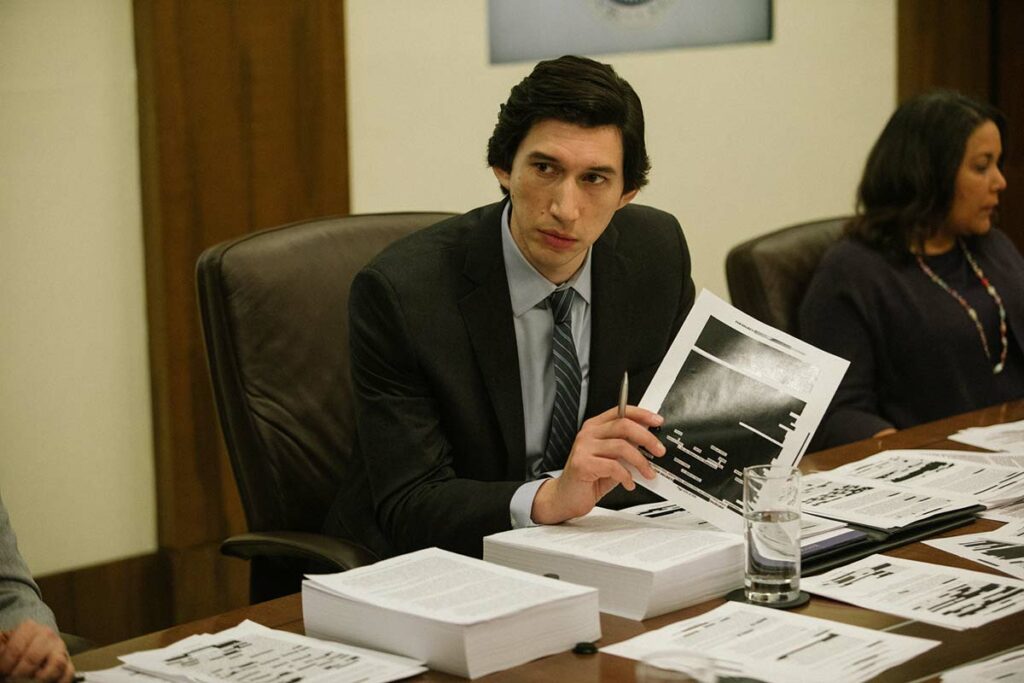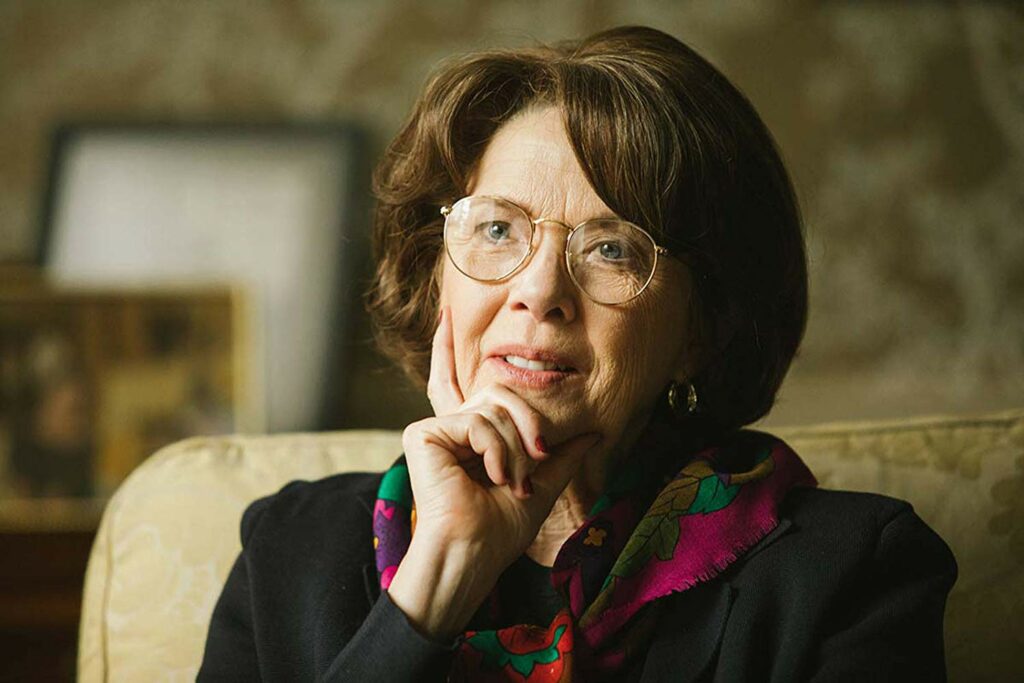After premiering at Sundance back in January, The Report is following a similar trajectory to The Irishman by having a short period in cinemas before a wider release on a streaming platform. Distributed by Amazon Studios, The Report stars Adam Driver as senator worker Daniel L. Jones, tasked by California Senator Dianne Feinstein (Annette Bening) into investigating the CIA’s Detention and Interrogation programme in the wake of the 9/11 terror attacks. What he finds includes secrets that the CIA would rather not share with the world, and Jones finds himself in the middle of an internal political dispute with some seriously high stakes.

Most people likely know at least a little about the CIA-led torturing of terrorist suspects at secret locations around the world, but perhaps know little about how such things came to public attention. Writer-director Scott Z. Burns delivers a stirring account of both democratic values and flaws that leaves no wiggle room for individual interpretation. It is affecting for sure, but disappointingly feels like little more than a lesson in history. With the exception of the content, Burns rarely pushes himself out of his comfort zone, the non-linear structure not dispelling the feeling that the way the story is told feels a little stale at times.
The Report doesn’t unbearably twist you into a state of anger and dismay like some of the best politically charged movies can do, but it still makes for brutal viewing. The torture scenes are uncomfortable, but also feel necessarry to add consequence to what Jones is investigating. The advances and revelations back in the USA come at such a pace that you barely have time to register them before the next explosive secret comes spooling out of Jones’ printer. Burns does barely enough to make this feel like anything more than a cold, hard presentation of facts glistened in a fiction narrative.

Considering the thick-and-fast pacing and an exhausting amount of governmental parlance, Driver’s performance is strangely stable throughout. Bar a few moments where his frustration fizzes to the surface, his performance is compelling but feels lacking in expression. Burns also grants little time to exploring Jones’ personal life beyond some quickly thrown away comments, so it is harder to side with him as quickly as you want to. It is Bening who shines as Feinstein, bringing weighted determination and authority to such an extent that the film feels all the more important whenever she is on screen. Burns, meanwhile, seems more skillful at telling the story rather than telling it in a refreshing way. Minus a nice piece of symbolism near the start featuring a snowglobe, the surface presentation of what happened is meant to be enough. Throughout all the cold complexity, this doesn’t always stick.
If you were to consider The Report essential viewing, it would be for its content rather than its presentation. But essential it perhaps remains. Despite discussing past events Burns’ story feels as current as ever with it’s choice focusses on party divisions and how easily difference of opinion can morph into outright hostility. It is a valuable lesson in failings at both the levels of the state and of human beings, but it could have done with feeling like a lot more than… well, a report.
The Report is out now.
